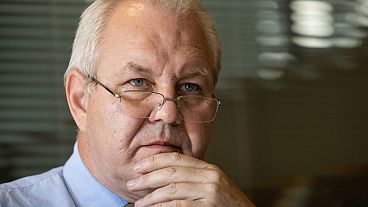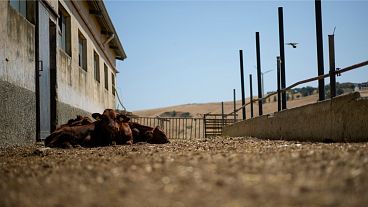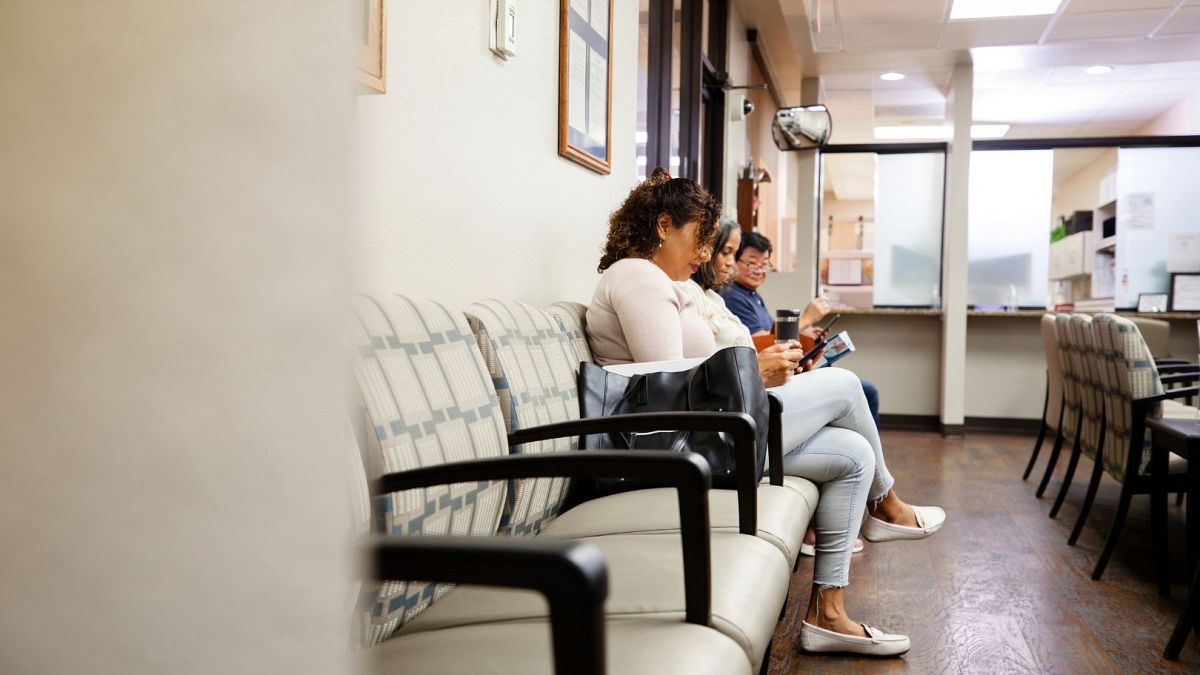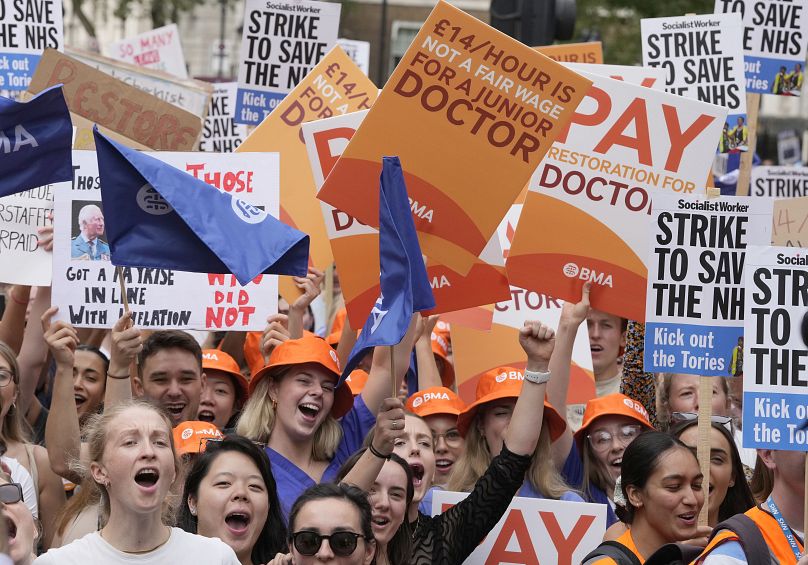General practitioners’ (GPs) move to limit daily visits could add pressure to other medical services, but the full impact isn’t yet clear because GPs will individually decide what to do.
Between long-standing staffing shortages, intense workloads, inadequate funding, and bureaucratic hurdles, many of England’s family doctors are in distress – prompting them to vote this week to take collective action for the first time in 60 years, a move their union described as an “act of desperation”.
But safety experts warn that patients could suffer as a result of the collective action, as GPs plan to limit appointments and direct patients to other providers in the coming weeks and months.
“This is definitely going to be felt across the country, and is a further setback for thousands of patients across England,” William Pett, head of policy, public affairs, and research at Healthwatch England, told Euronews Health.
The collective action isn’t a strike, and it isn’t mandatory. GPs represented by the British Medical Association (BMA) can choose from a suite of 10 recommended actions that it says bring GPs’ workloads back in line with their contracts.
The most notable is an option to cap the number of patients seen at 25 per day. For the busiest GPs, who may see upward of 40 patients per day, that would be a 37.5 per cent drop.
As a result, patients could face longer wait times for GP appointments, leading to delayed diagnostics or treatments, Mirka Cikkelova, general secretary of the European Patient Safety Foundation, told Euronews Health.
Limitations would also have ripple effects on other healthcare services, such as pharmacies, emergency medical services, and the 111 symptom hotline, according to Pett.
As one of the 10 recommended actions, GPs could choose to bypass NHS processes and instead refer patients directly to specialists.
“We are going to be putting increased pressure on already very stretched services,” Pett said.
“There is a concern about how overloaded other services may become as a result of this collective action.”
Potential of ‘worse outcomes for patients’
During the collective action, which is indefinite, GP practices are still required to be open from 8 a.m. to 6:30 p.m. between Monday and Friday. But Pett said patients may think that service limitations are the result of a strike, and avoid seeking any care at all.
Peter Howitt, managing director of the Centre for Health Policy and Climate Cares Centre at the Institute of Global Health Innovation at Imperial College London, likened the potential disruptions to the COVID-19 era when providers were overwhelmed and patients put off seeking non-urgent care.
“When people worried about the health service capacity, they just didn't go – and that led to things like cancers being caught and diagnosed much later, with much worse outcomes for patients,” Howitt told Euronews Health.
On the other hand, limiting patient visits could also give family doctors more time with each patient, leading to better patient outcomes, as well as less stress for GPs, Cikkelova said.
Yet “at the same time, a solution has to be found for the other patients who are left aside by this decision,” Cikkelova said.
A resolution could be at least a couple of months away, Howitt said.
Months of disruptions due to strikes
The BMA has blamed the UK’s former conservative governments – which were in power for 14 years before being ousted in July – for the country’s “broken” National Health Service (NHS). The union said it has had “positive conversations” with Wes Streeting, the new health secretary for the Labour-led government.
The government also announced this week that it would recruit more than 1,000 new GPs this year, in a bid to “rebuild the health service”. But it wasn’t enough to stave off the collective action vote.
The BMA decision also came days after a union committee struck a deal with the government to raise pay for England’s junior doctors by an average of 22 per cent over two years. Junior doctors have taken industrial action 11 times since March 2023 – including several strikes – leading to nearly 1.5 million acute visits being postponed, according to NHS England.
The GP collective action probably won’t have the same impact on patients as the junior doctors’ strikes, Howitt said.
That’s because about 68 per cent of eligible GP voters turned out for the collective action vote (with 98 per cent voting yes), so it’s likely that some practices won’t take the recommended measures. Not all GPs are BMA members, either.
However, the latest move exacerbates the access barriers patients have been grappling with since last year, Pett said.
In a nationally representative survey from June, about a quarter of UK adults said they have struggled to get a GP appointment in the past six months.
“This is just a further impact on patients from what has already been an incredibly disruptive 18 months,” Pett said.
“These are not just numbers of cancelled appointments. These are real people having to deal with the stress and the anxiety of now-further delays to what could be a really urgent diagnosis.”
Pett, Howitt, and others emphasised that if patients have a health issue, they should continue to try to see their doctor, adding that GPs participating in the collective action should clearly communicate what steps they are taking and how patients can find alternatives if necessary.
“The biggest risk here is that people suffer in silence,” Howitt said.
















